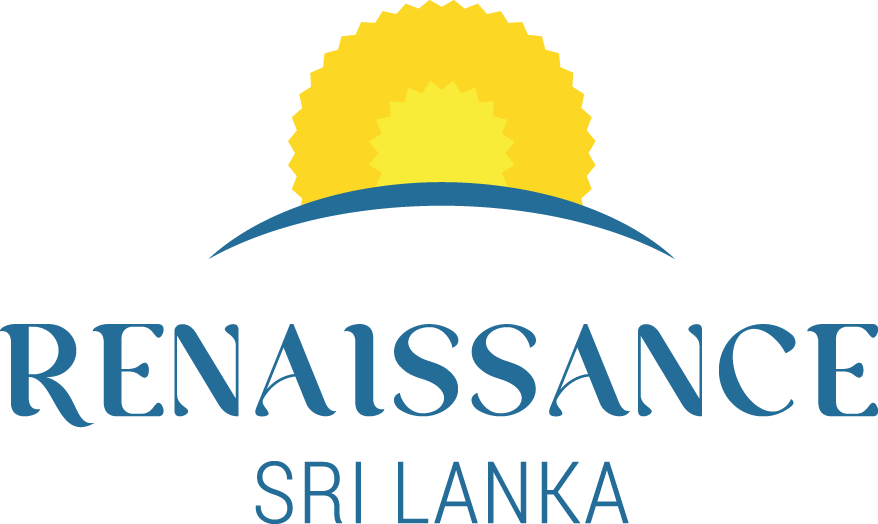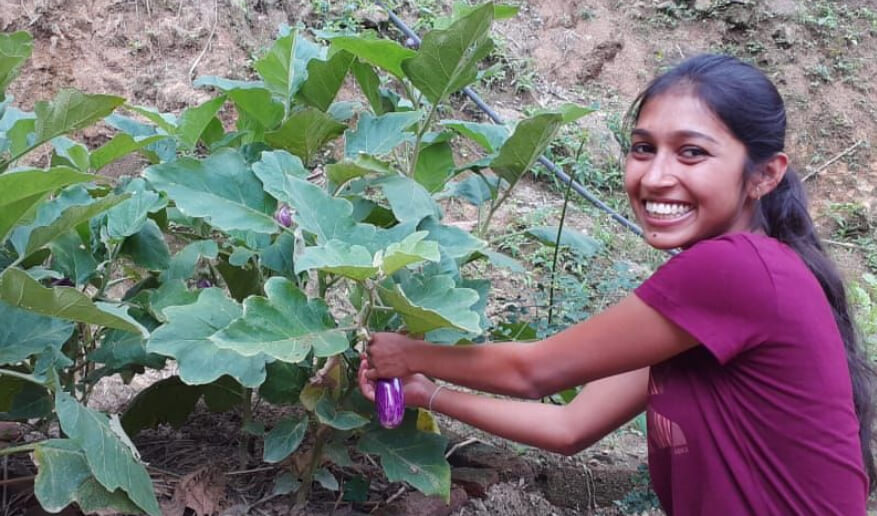Offering a sustainable income to 120 Women trained in agro-ecological Farming
Sri Lanka is weakened by an agricultural crisis that began decades ago, due to the implementation of an agricultural system that relies heavily on expensive and scarce imported inputs, but also harms the environment and the population.
The economic crisis that began in early 2022 has profoundly compromised Sri Lanka’s ability to feed its own population.
Our project is training 120 women from vulnerable communities in the northern provinces in organic farming through agro-ecological practices to ensure a stable income.
We are empowering women, increasing Sri Lanka’s agricultural production of staple foods and improving food sovereignty and security.
This project started in August 2022 and is in progress.
Why we transform the Agricultural System to reach 3 Meals a Day
Sri Lanka has faced an agricultural crisis in recent decades due to the implementation of an agricultural system that relies heavily on expensive and scarce imported inputs such as fossil fuel-based fertilizers, pesticides, farm vehicles, machinery and equipment, and seeds. As a result, production costs have skyrocketed, and farmers are finding it increasingly difficult to make ends meet.
Since the economic crash that began in early 2022, it is more critical than ever to implement an alternative farming system such as agroecology, which can provide a holistic solution to a wide range of economic, environmental, social, and political problems, while ensuring food security and sovereignty.
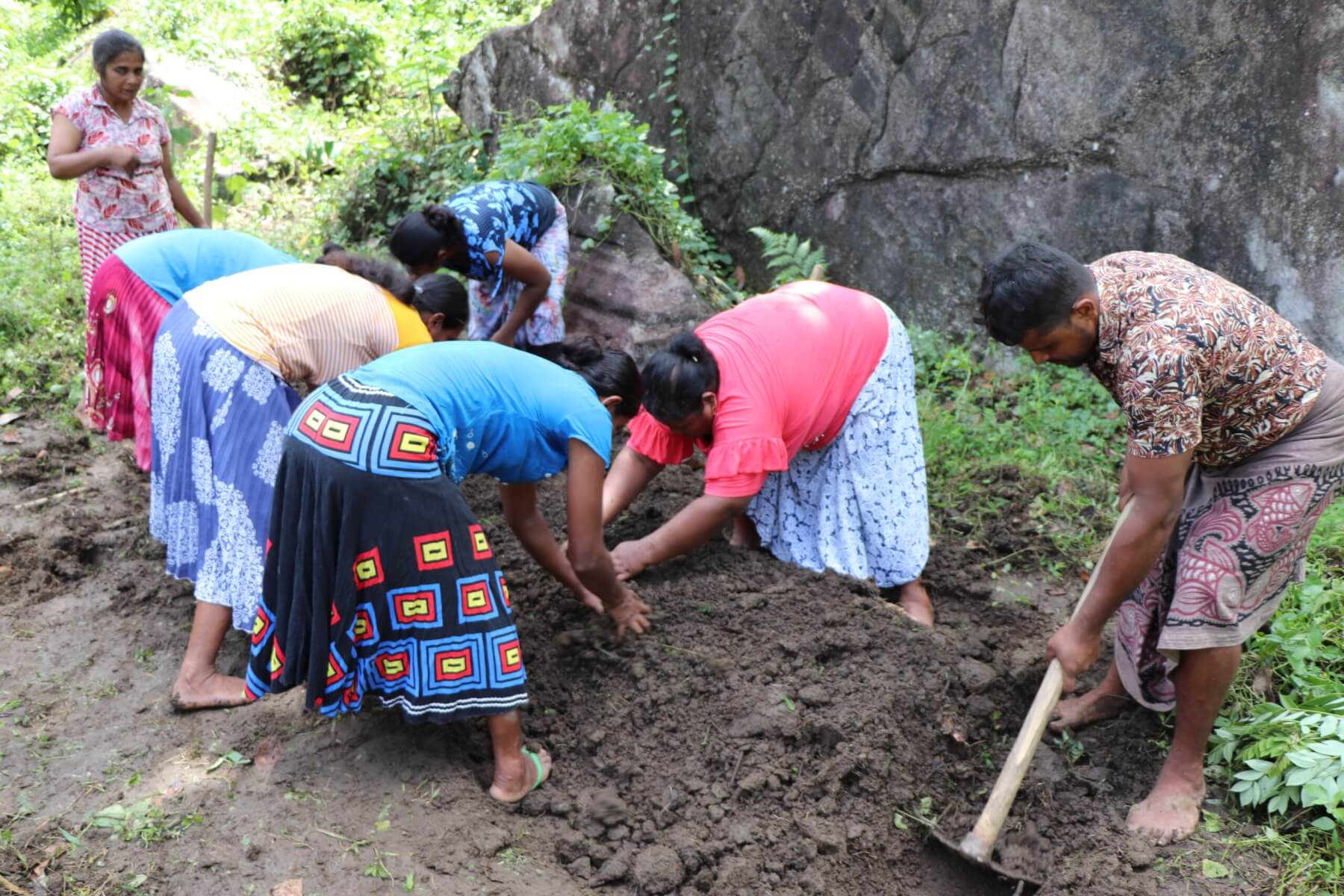
We know that Women’s leadership is essential to achieve Success
Traditional agriculture, also known as indigenous agriculture, was practiced under the direction of women. Women had extensive knowledge of each critical stage of cultivation, including seed germination, seed storage, sowing, harvesting and crop storage.
Women give birth to children, nurture and care for them by providing the healthiest foods. This is why women have always been the first to support agroecology.
It is time we trust these women to use their traditional knowledge of cultivation as well as their dedication to contributing to a society where they want their children to grow up.
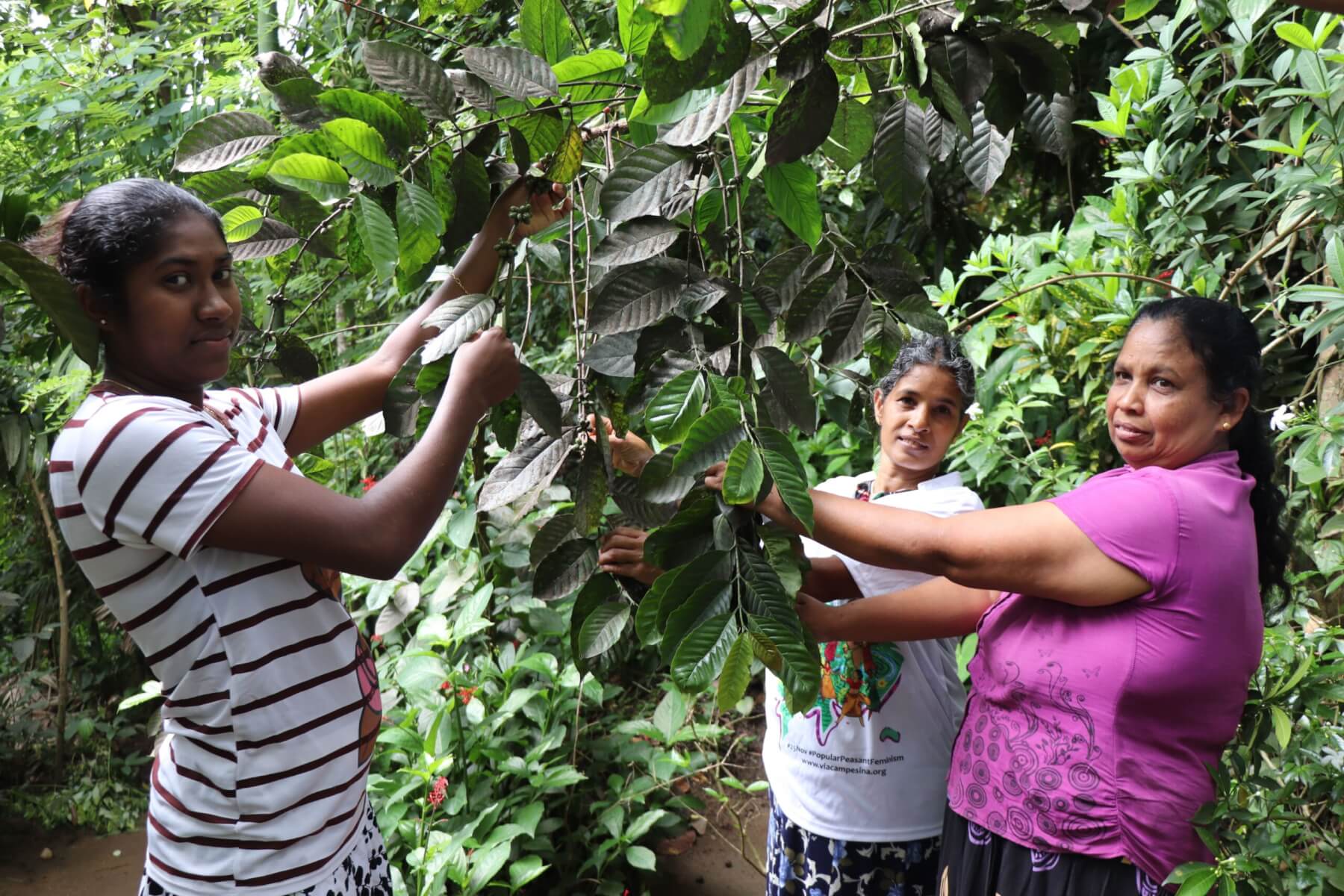
Our project focuses on three groups of women who need urgent help:
- Women victims of microfinance scams: 2.5 million women have been affected by microfinance scandals operated by unregistered microfinance agencies and individual lenders. Many of these women are from farming communities and are subject to threats and sexual harassment by loan collectors. Many of them have been sued by the microfinance companies because they have not been able to repay the loans and payments.
- Women who have resettled due to the construction of the Yan-oya reservoir: this project has impacted 500 families that had to resettle. Most of these families depend on agriculture and are now facing problems earning a decent income, due to lack of infrastructure and resources for agriculture.
- Women affected by the Lower Malwathu Oya reservoir project: over 650 farming families are impacted in all.
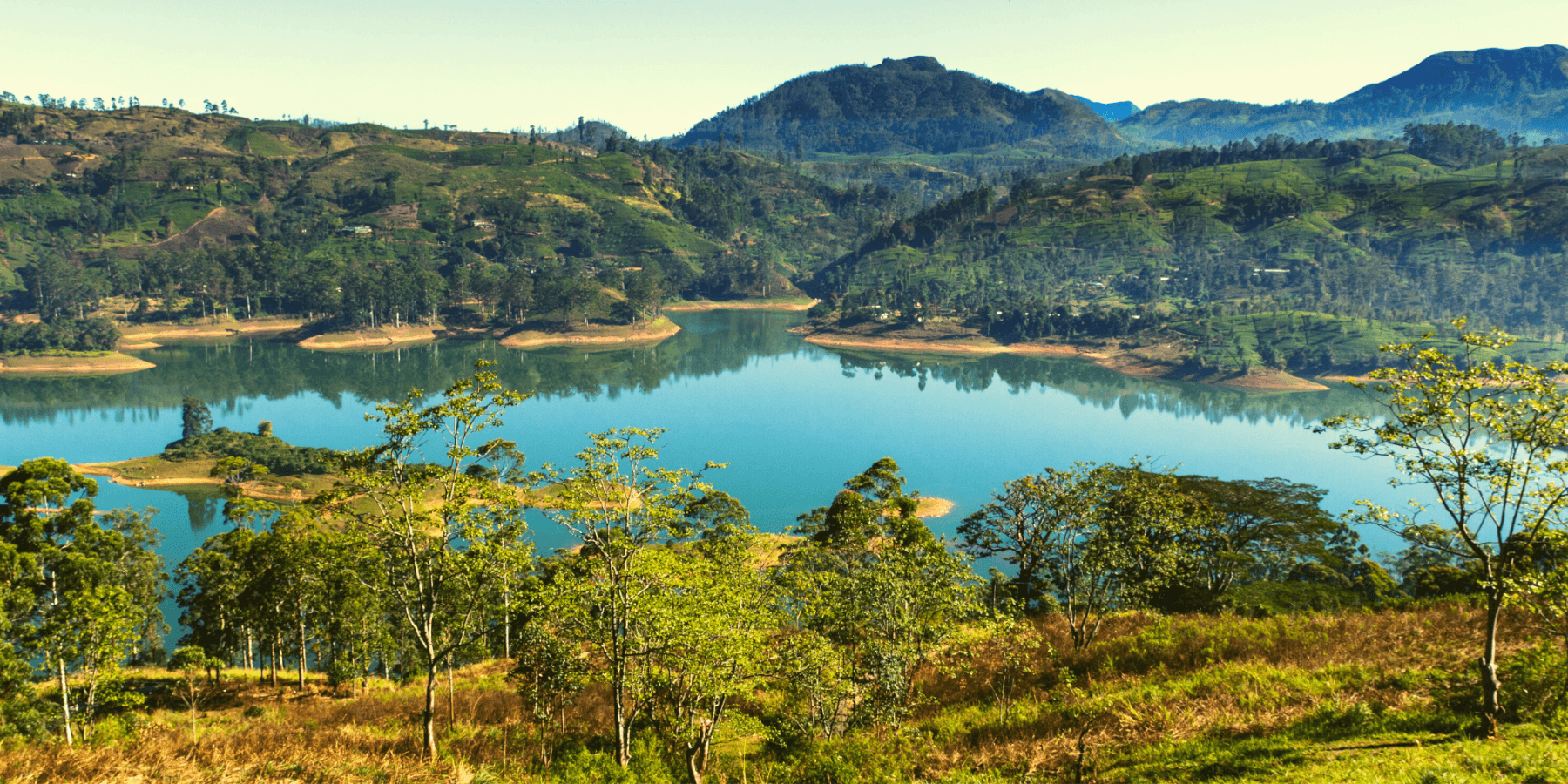
How we solve the plight of Sri Lankan farmers through agro-ecology
Agroecology is a technique of sustainable farming that focuses on utilizing natural resources and optimizes the relationships and interactions between animals, plants, people, and the environment while addressing social issues for a fair and sustainable food system.
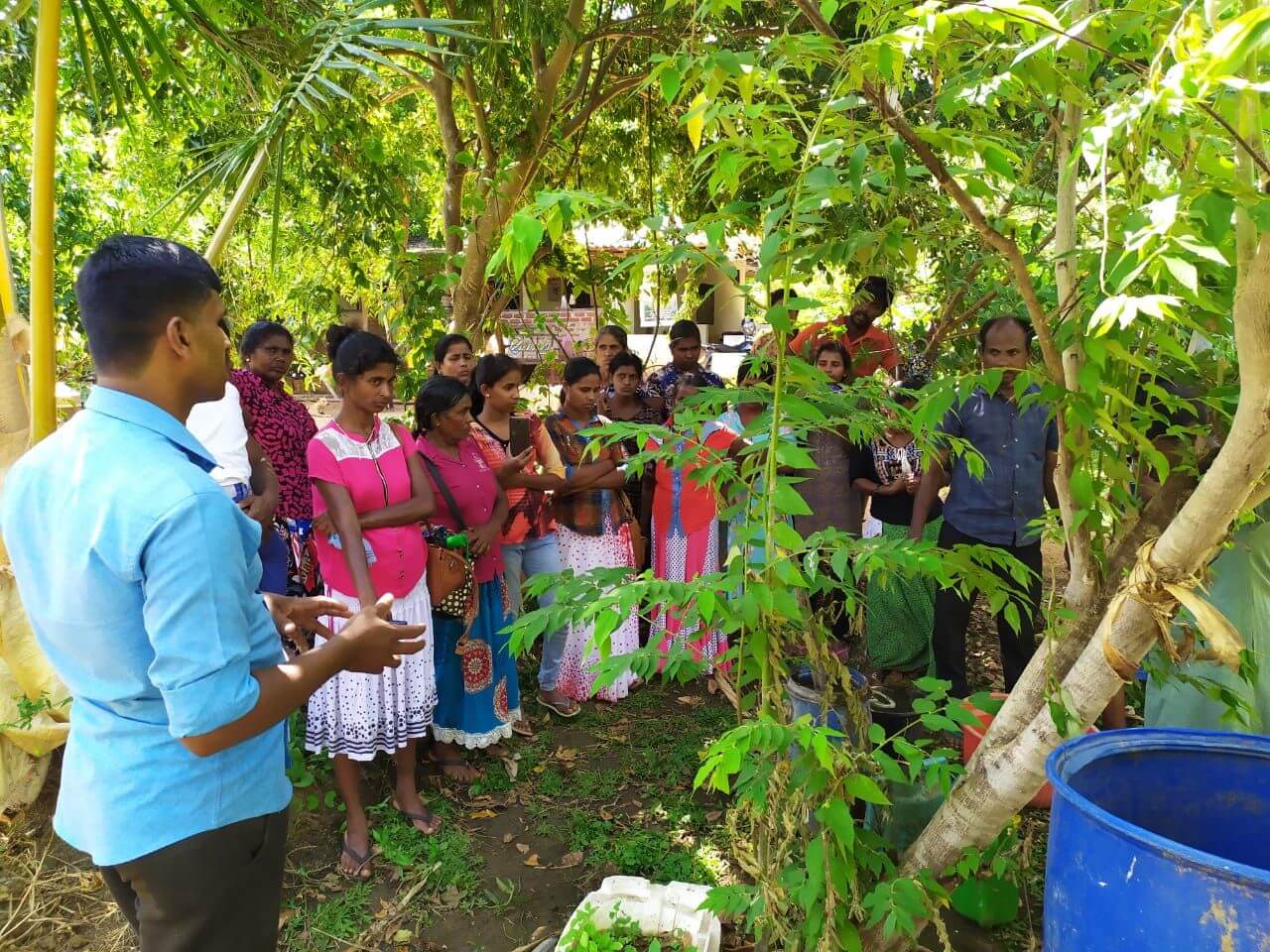
Our collaboration with MONLAR, an experienced partner in the field
We conduct the project in collaboration with our partner, the Movement for Land and Agricultural Reform (MONLAR, https://monlar.lk/ ).
MONLAR works with smallholder farming communities negatively affected by counter-productive infrastructure development programs and policies in Sri Lanka, for many decades. MONLAR trains farmers to agroecological practices specially adapted to Sri Lanka, and largely inspired from indigenous farming techniques.
The multi-fold benefits of agroecology for Sri Lanka
- Agroecology is based on the use of local resources, drastically reducing costs. There is no dependency to imported inputs such as harmful fertilizers and pesticides, farm vehicles, machinery and equipment, and seeds.
- The work of the farmland uses animal husbandry. Unlike farm vehicles, agroecology is not dependent on fuel.
- Food production is increased, when compared to industrial agricultural techniques. Food security is improved.
- Through the cooperatives and sales network of MONLAR, farmers can sell their produce for a fair price, and count on a sustainable and good income in the long-term.
- Indigenous farming techniques are valued which has a direct positive social impact and the farmers access a more recognized and respected status in society.
- Agroecology reconnects producers and consumers through a circular and solidarity economy, prioritizing local markets and supporting local economic developments.
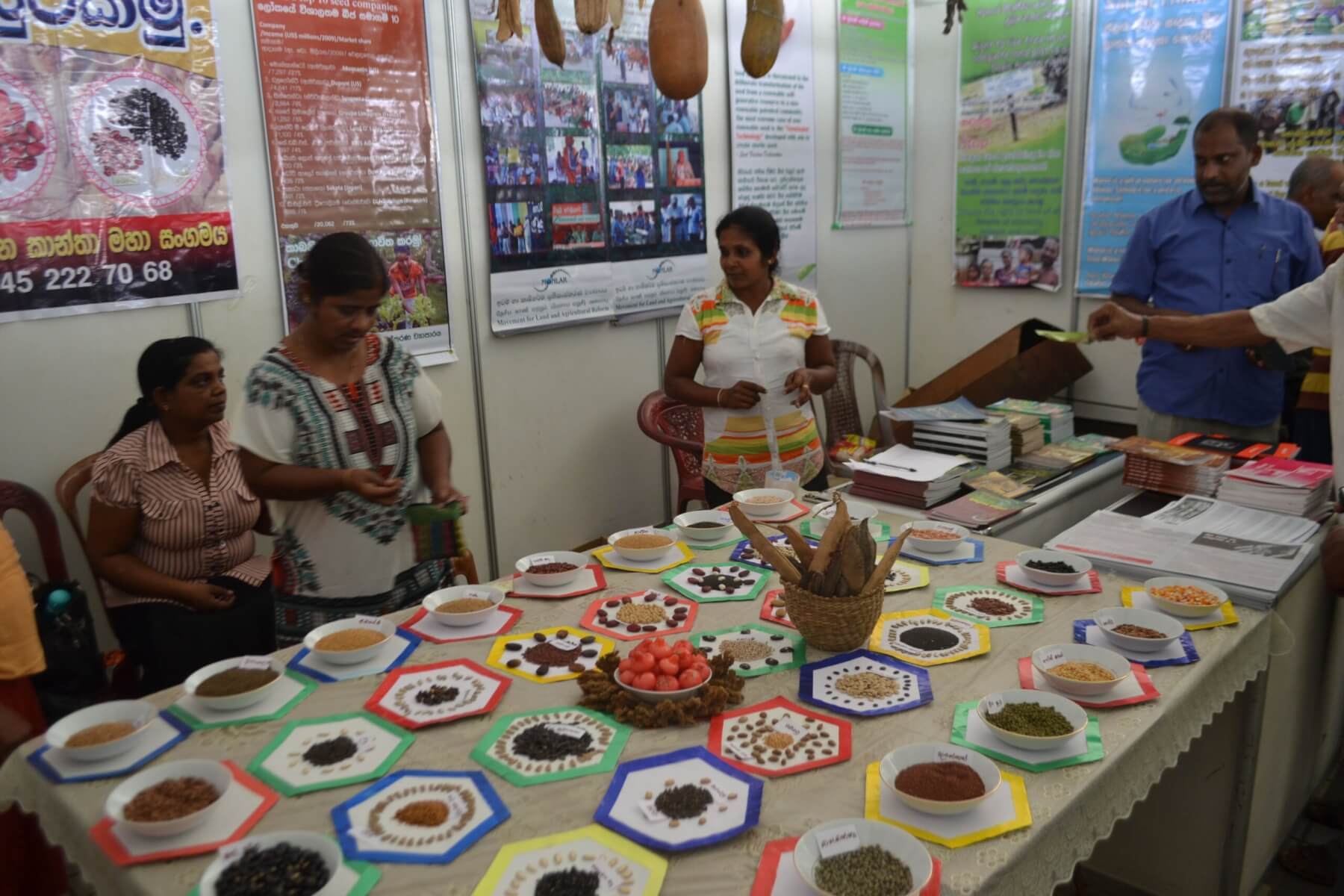
How we conduct the project for fast and effective results
Agroecology trainings, traditional seeds and planting materials are provided to the selected 120 women farmers from August to October 2022:
- 3 training sessions of one day each will be organized.
- 40 women will participate to each training session.
- Each woman will receive training materials (stationery and reading materials on agroecology) and planting materials (reusable indigenous/local vegetable and paddy seeds).
Renaissance Sri Lanka finances the project by 360,000 LKR.
The funds that Renaissance Sri Lanka allocates to this project come 100% from individual donors from USA, France, Italy, Australia mainly.
MONLAR contributes to covering human resource expenses, transport costs and administration costs for the training programs.
The budget breakdown is given below.
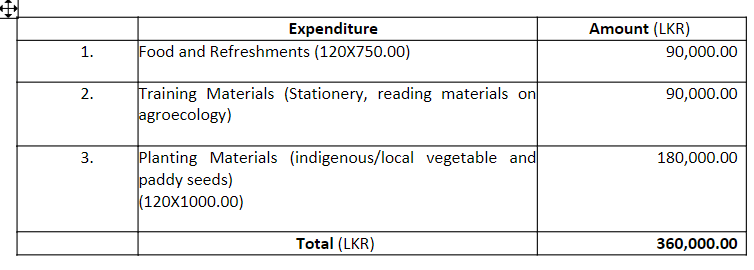
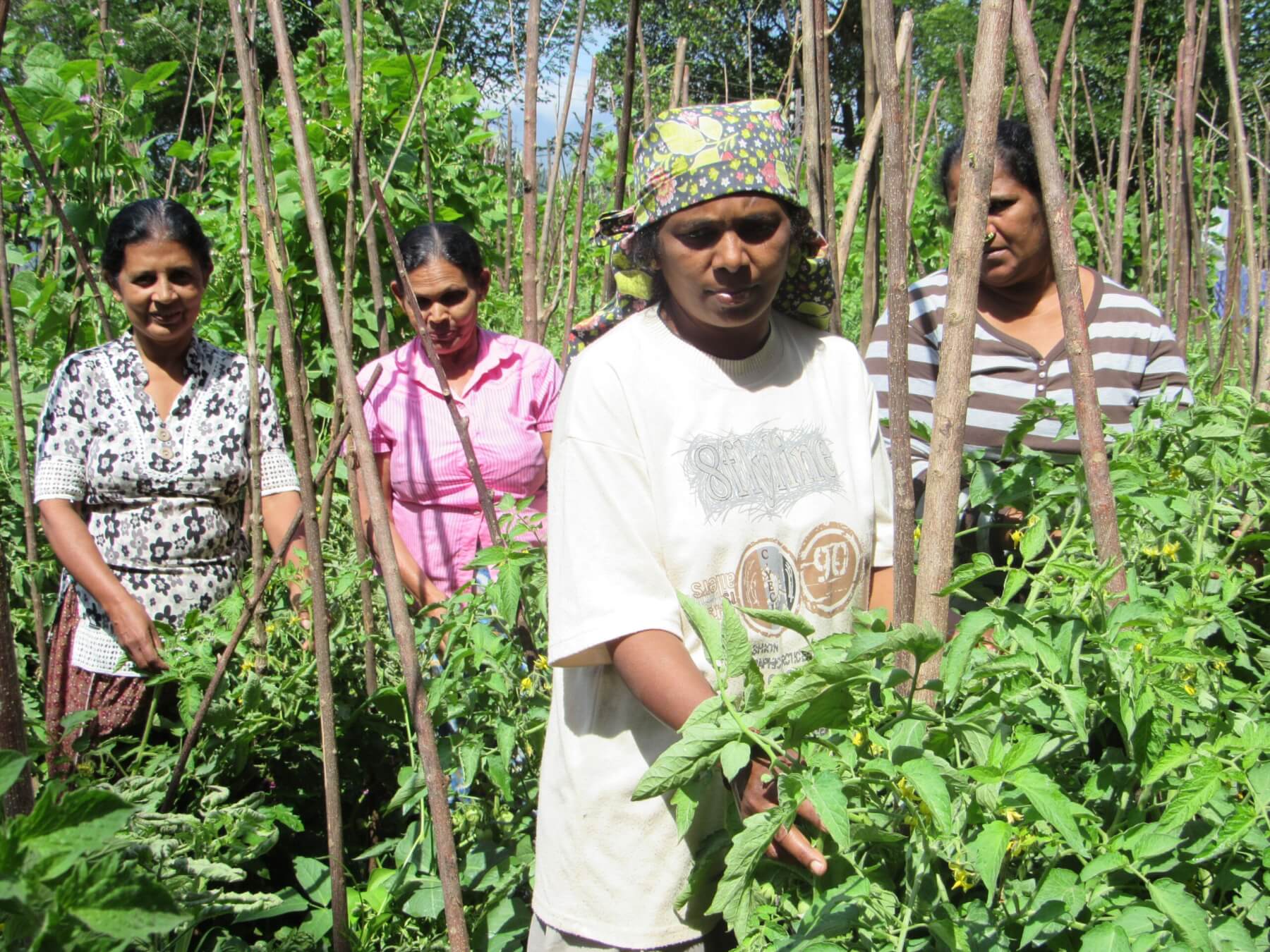
We build a strong Agriculture for Sri Lanka, the first Step to a better Life
As of September 2022, the first group of women have been trained. These ️40 Sri Lankan women from Welioya, are victims of microcredit scams.
These women can now contribute to the production of healthy food 🌾🌾🌾for Sri Lanka and live on a lifetime income!
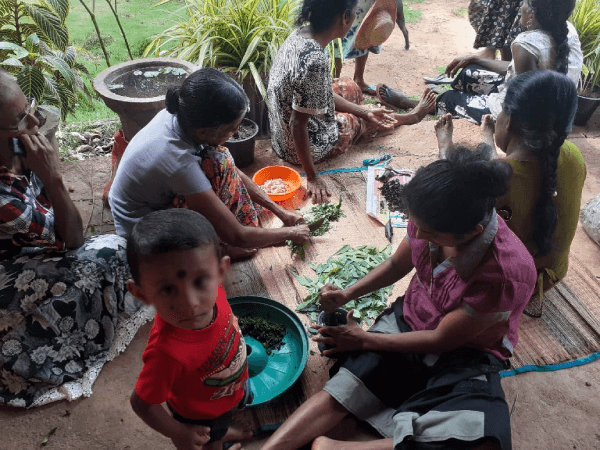
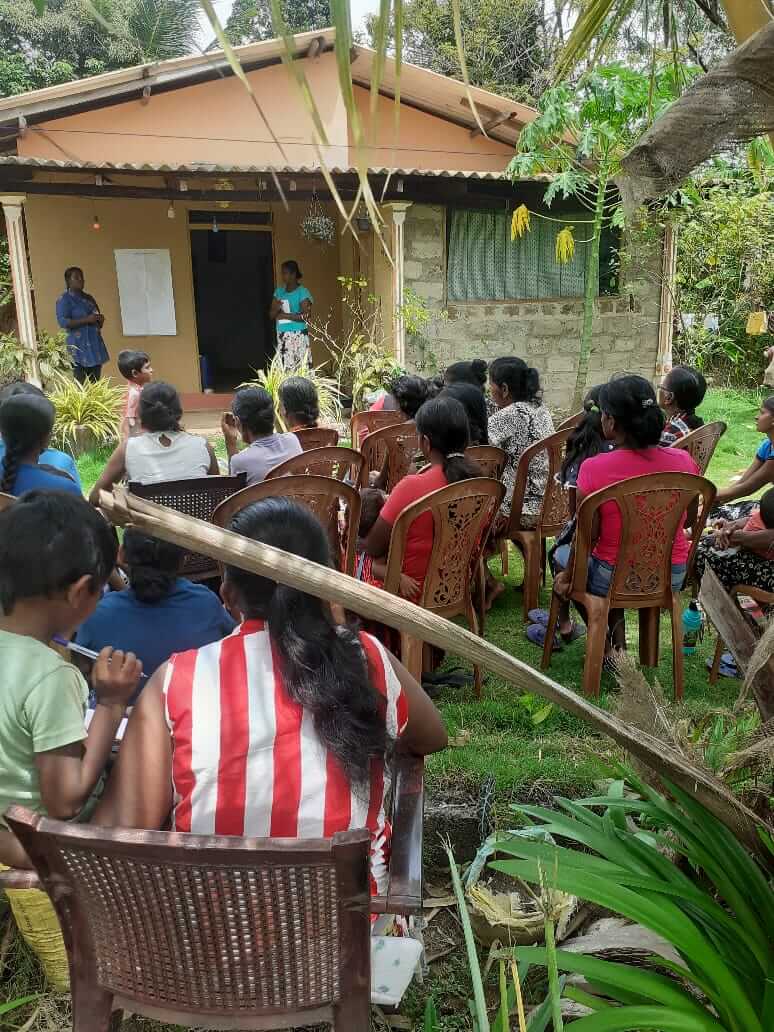
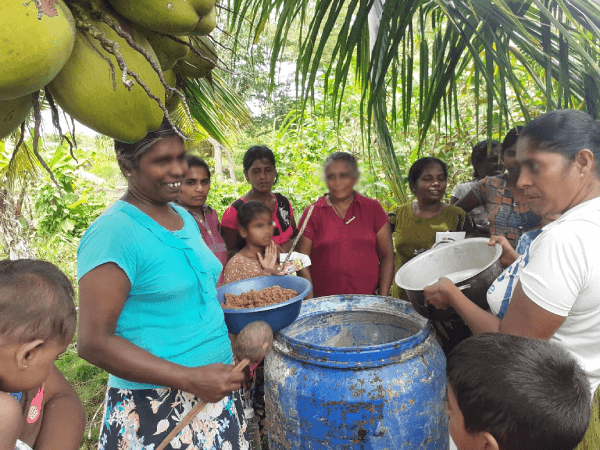
We regularly inform the progress of our projects in our newsletter and on our social media channels. So, stay tuned for regular updates on this one. Follow us on Facebook and LinkedIn.
Did you know that we are also enabling 100 women from vulnerable communities in the Badulla district, start dry food businesses for a sustainable income. Click here to learn more.
We are actively fundraising to build community ecosystems in the villages of Sri Lanka, which is about uplifting entire villages economically, socially and environmentally! The building of a strong agriculture forms the base of these community ecosystems, and training sessions similar to the ones described in this project are planned. Want to know more? Click here.
Want to contribute to our stunning projects? Don’t wait and click here!
References
Earth Eclipse. Agroecology, Importance, Benefits, Principles. Accessed August 2022. https://eartheclipse.com/environment/agroecology-importance-benefits-principles.html
MONLAR Website. Accessed August 2022. https://monlar.lk/
Wikipedia. Sri Lankan diaspora. Accessed August 2022. https://en.wikipedia.org/wiki/Sri_Lankan_diaspora
Wikipedia. Sri Lankan Economic Crisis. Accessed August 2022. https://en.wikipedia.org/wiki/2019%E2%80%93present_Sri_Lankan_economic_crisis#:~:text=The%20crisis%20is%20said%20to,19%20pandemic%20in%20Sri%20Lanka.
